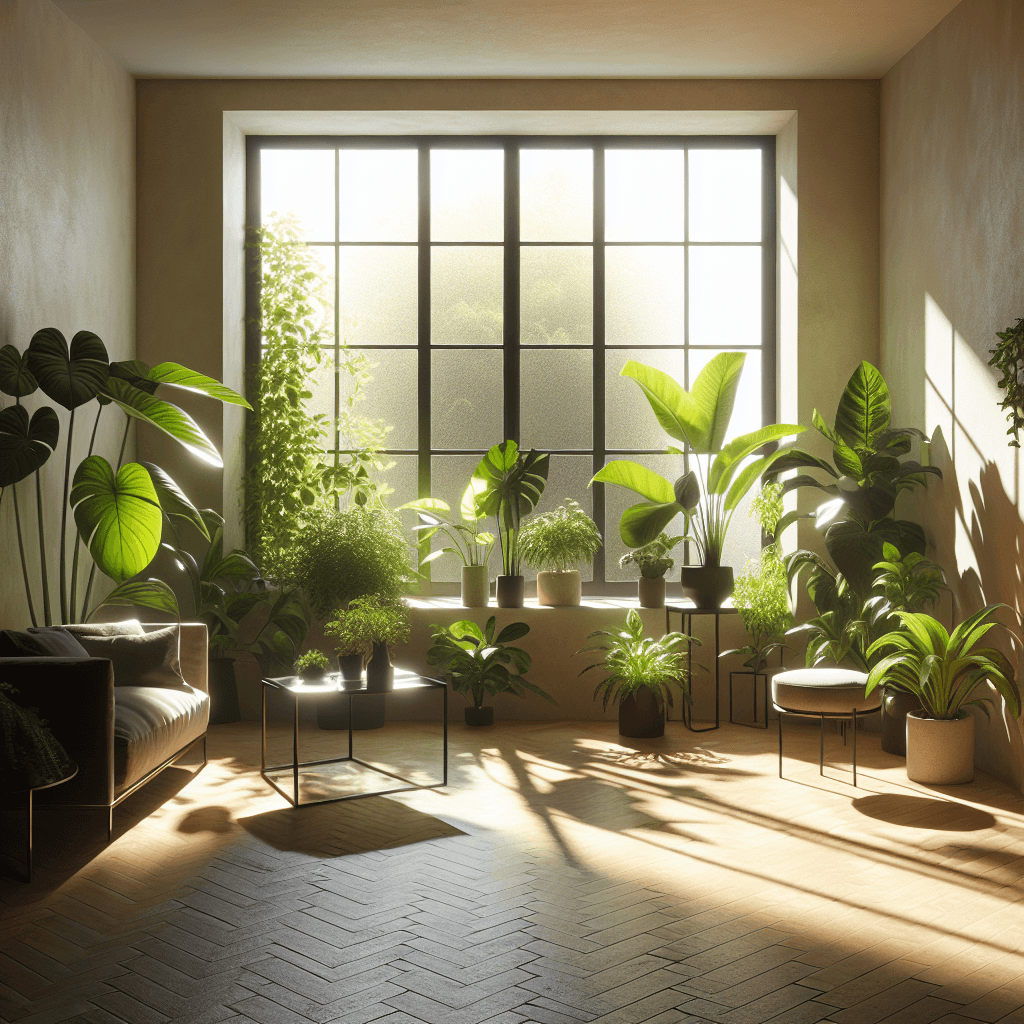The Secret Life of Houseplants: Green Friends or Foes?
Do your houseplants know more than they let on?

In the lush corners of our homes, beneath the subtle hum of everyday life, an unnoticed drama unfolds daily. Yes, I'm talking about those supposedly inert companions that adorn our windowsills and coffee tables - houseplants. What if I told you that the seemingly innocent fern or the stoic cactus in your living room has been leading a secret life right under your nose? Grab a trowel and your favorite pair of gardening gloves as we dig into the root of this mystery.
Houseplants have been the unsung heroes of home decor and even health, thanks to their air-purifying abilities. But what else do these botanical buddies do when we turn our backs? Have you ever noticed a spritely leap in your spider plant's leaves while retrieving that mislaid book that fell behind the shelf? Or the way your snake plant seems to listen intently as you recount your day to it over a cup of tea? Science claims it's all in our heads, attributing such thoughts to anthropomorphism. But perhaps it's time to think again.
Let's delve into the whispers among horticulture enthusiasts that suggest a world beyond photosynthesis and transpiration. For starters, the realm of plant communication, also known as allelopathy. Through the silent screams of chemical discharge, plants warn each other about potential threats such as pests or disease. That's right, your parlor palm could be the Paul Revere of the plant world, and your apartment, the next battleground for a microscopic Revolutionary War.
Houseplants may also be the silent judges of our lifestyle choices, basking in our care or withering under our neglect. The droopy leaves of a neglected Boston fern might be perceived as a green thumbs-down to your recent spate of late nights or your overindulgence in takeout. In stark contrast, the robust growth of your Peace Lily could very well stand testament to a harmonic, love-filled household.
And then there's the power of greenery to alter our emotional states. Researchers claim that interaction with indoor plants can reduce psychological and physiological stress, but anyone who's caressed the leaves of an Aloe after a rough day knows the true depth of this bond. Even the laid-back ZZ plant that thrives on neglect appears to emanate a chilled vibe, affecting our very mood and work ethic in its stoic, evergreen presence.
There's enough chatter about plants knowing which way is up and down, using gravity and light to guide their growth. But could they be gravitating towards our affection and compliments as well? After you've lovingly praised your African violet into blooming, it's tough not to envision it reaching toward not just sunlight, but also positive reinforcement. Do plants grow better with sweet talk and Mozart? Many plant parents swear by it, and though the science isn't conclusive, it's a delightful thought that brings us ever closer to our average Areca.
Let's not forget plant cognition. Yes, plant neurobiology is a field, even if it doesn’t include a brain per se. Studies on Mimosa pudica (the ‘sensitive plant') have shown that these clever greens can learn and remember, going as far as to stop reacting to non-harmful stimuli over time. It just begs the question: If a Mimosa refuses a handshake, does it remember your questionable repotting skills from last spring?
So, what's the verdict? Friends or foes? Whether our green companions harbor the secrets of the universe in their photosynthetic hearts or not, they undeniably add intrigue (and oxygen!) to our concrete jungles. As caretakers of these mysterious life forms, perhaps it's time to treat them with the reverence of a roommate instead of the accessory status we've relegated them to. Who knows – in the vast, whispering network of roots and leaves, your rubber tree might have already penned a new leafy bestseller titled 'Days of our Pots: The Untold Stories of Indoor Flora'.
Next time you stroll past a blooming bougainvillea or whisper goodnight to your air-purifying Monstera, consider the cryptic performative art that is plant life. And as you step back and marvel at the verdant tapestry that lines your abode, you could just be front-row at nature's ballet – a symbiotic spectacle of silent storytelling. So be kind, be attentive, and maybe even share a story or joke with your leafy friends. After all, every house could use a little more life – even the secret kind.